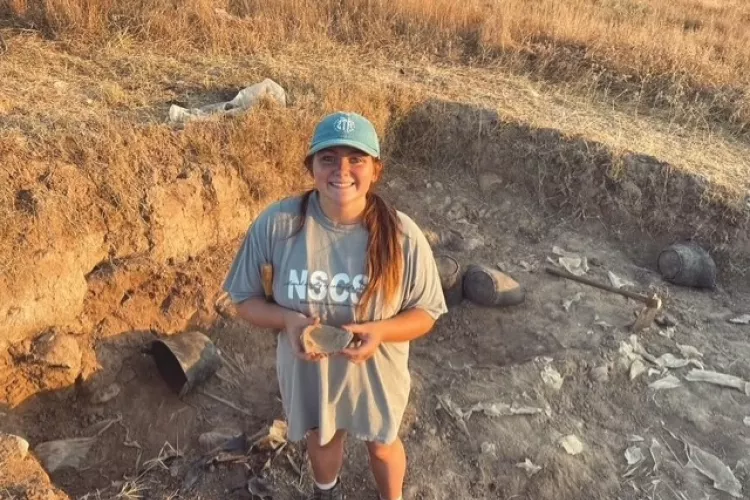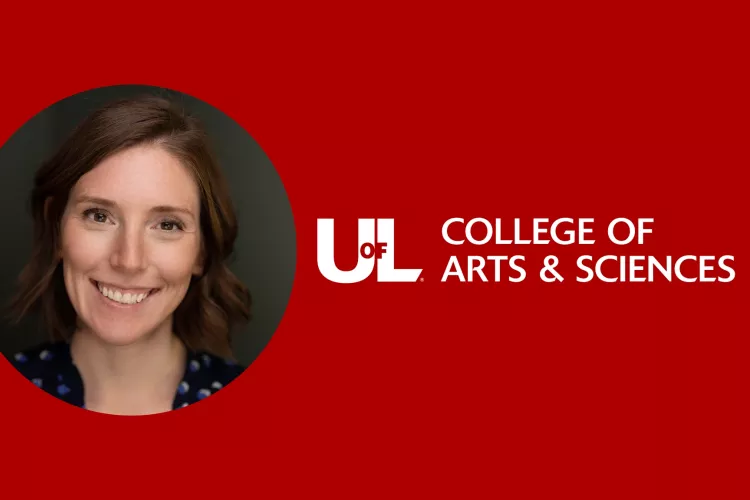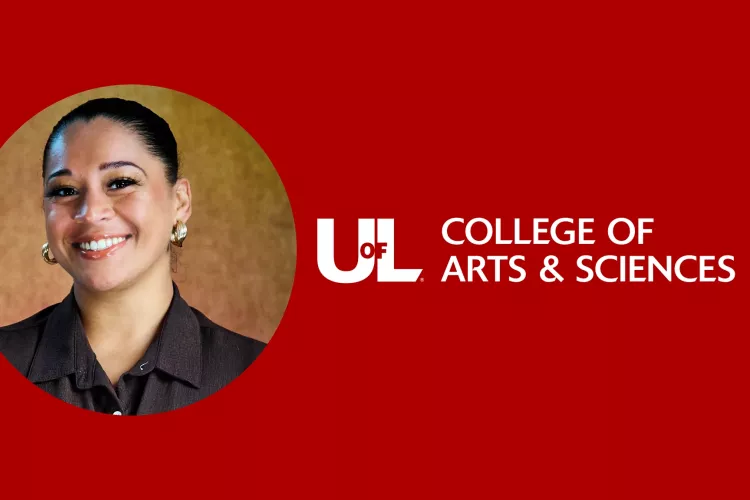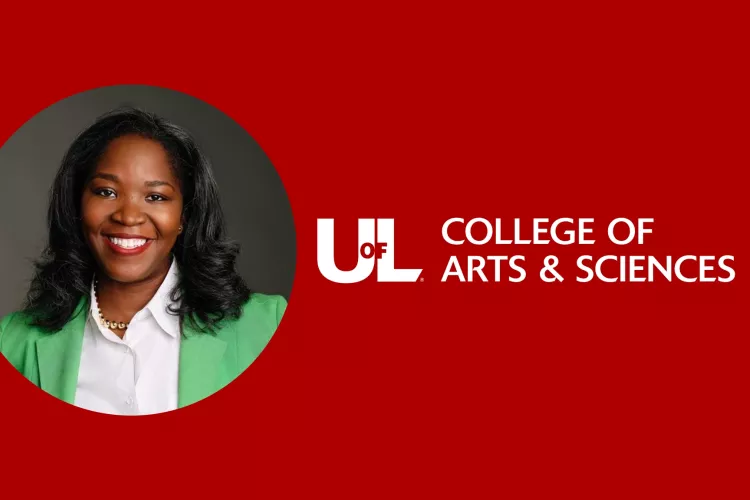History Department Showcases Research and Leadership at 2025 World History Association Conference
August 20, 2025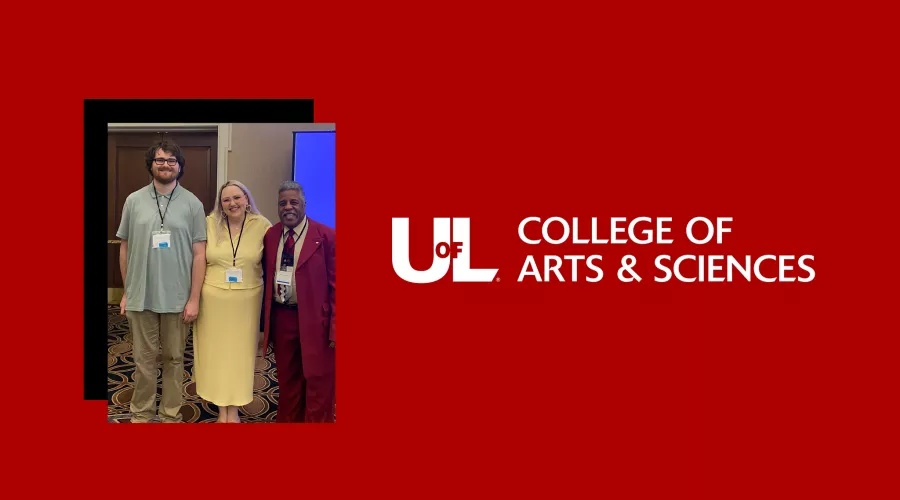
Term Associate Professor of History Rebecca Devlin recently provided UofL colleagues and students of all levels a place on the global stage as she advocated for and helped to organize the World History Association’s annual conference, with 2025’s event being held in Louisville.
With undergraduate and graduate students volunteering and presenting alongside faculty members from across many A&S disciplines, this blending of scholarly work set the stage for UofL’s expertise to be showcased among historians from across the country and the globe.
“My goal was to use this as an opportunity to make sure that students and all levels of faculty had an opportunity across A&S to showcase the excellent work that they're doing. I really wanted people to see that the University of Louisville has got it going on,” Devlin said. “I feel like it was very successful. The leadership was thrilled at the end of the conference, and they just couldn't stop talking about how awesome UofL was, and that they hadn't had this level involvement in a very long time.”
Devlin first connected with the World History Association (WHA) while attending its 2024 conference in San Francisco, where the theme aligned with her global research interests and her teaching in world civilizations. Inspired by the experience, she immediately began imagining how impactful the conference could be for colleagues and students in Louisville.
When WHA President—and her former professor—Trevor Getz reached out about potential host cities, Devlin enthusiastically advocated for Louisville, ultimately helping bring the 2025 conference to the city. History Department Chair Christine Ehrick also played an instrumental role in bringing the conference to Louisville, connecting with local community partners and advocating for support from the college.
WHA is a professional association of scholars, teachers, and students organized to promote world history by encouraging teaching, research, publications, and personal interactions. It was founded in 1982 by a group of university faculty and secondary-school teachers determined to address the needs of a newly emerging historical sub-discipline. Its mission is to “promote activities which will increase historical awareness, understanding among and between peoples, and global consciousness.”
One of the challenges of planning the conference for Devlin was making sure students could attend and participate free of charge. She worked with conference leadership to make sure all UofL students had a chance to volunteer, and if they were not able, that they could still attend free of charge.
"I saw them working, I saw them networking, and throughout most of the conference, you could just see them getting more and more comfortable kind of being a scholar among other scholars,” Devlin said.
Devlin and Ehrick organized five different panel discussions for the event. One of the standout sessions was a hands-on workshop focused on digital teaching tools, which included a virtual reality field trip to Ancient Egypt. Presented by Jennifer Westerfeld, Associate Professor of History, it was based on her experiences using VR field trips to Egypt in her 300-level Ancient Egypt course and History 101, World Civilizations course. The immersive experience was made possible through a collaboration between UofL’s Adam Huddleston (TILL Instructional Technology Specialist, Delphi Center for Teaching and Learning) and Lance E. Rigney from the School of Dentistry’s IT team. Their efforts helped demonstrate how emerging technologies can enhance student learning and engagement, adding an innovative dimension to the academic programming.
Several members of the UofL community shared their research, including John T. Lowe (Senior Lecturer, History), Joseph Towell (History M.A. student), Yomi Ejikunle (Doctoral student, Pan-African Studies), Kathryn E. Marklein (Assistant Professor, Anthropology), and Anna T. Browne Ribeiro (Associate Professor, Anthropology). Gracie Strunk, an undergraduate History major, also contributed by volunteering at the event. Eve Carlisle Polley, Senior Lecturer in Comparative Humanities and Philosophy, served as the Associate Conference Director, helping to coordinate the event’s logistics and programming. Tyler Fleming (Associate Professor, Pan-African Studies and History) and Charlton Yingling (Associate Professor, History) both took on significant roles by organizing panels, presenting, and chairing numerous sessions.
Barry Johnson, lecturer in the School of Music and graduate student in the History MA program, presented a synopsis of his research on the impact of WLOU radio on Rhythm and Blues bands, circa 1960-1975, and helped bring in numerous community members for the roundtable, “Documenting and Sharing Local Black History: Community-Engaged Public History Projects at the University of Louisville.”
“Attending the conference and observing the professionalism of the many historians inspired me to elevate my knowledge and scholarship to the levels of those leading brain trusts that make history, its development, discovery, and its field of study alive and exciting,” Johnson said. “Attending conferences such as the WHA inspired me to believe that I will join the ranks of a professional historian that has contributed to the field which will have a lasting impact on the historical community.”
Having the chance to see UofL students and faculty showcased made all of the hard work even more worth it for Devlin.
“It was awesome. It was kind of a dream; it was really great to see them shining and sort of growing even over the course of the weekend,” Devlin said. “I enjoyed having the chance to take students to lunch where they could meet other faculty and people from other institutions who were giving them advice. It was also great to see people from across A&S, Anthropology and History, Fine Arts, Humanities, and the Anne Braden Institute coming together.”
Graduate History student Troy Plumer, who also presented at the conference, said, “The greater the number of ‘at-bats,’ the more experience gained for becoming a better ‘hitter,’ meaning meeting the goals of Public Historians, serving the needs of fellow historians and the public in various capacities via application of historical methods and knowledge. Also, it’s always great to see similar ‘hitters’ plying their craft so I can learn more from them as well about how they research and present.”
He added that the most rewarding aspect of getting involved in the WHA conference was the chance to work collaboratively with fellow scholars and community partners to tell a worthwhile story.
Devlin agreed and noted the connections that were strengthened from throughout different aspects of her career at the WHA Conference.
“For me, it was really rewarding,” Devlin said. “One of my former professors commented that he was really proud of me, which was just so nice. I also had one of my PhD advisors come out of retirement to comment on a panel. It all felt very full circle. And seeing our students and faculty showcased like that—it was exactly what I had hoped for. It was really cool.”
Related News
